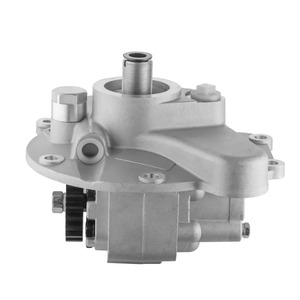-
 Find in Members
Find in Members Find in Videos
Find in Videos Find in Channels
Find in Channels
This website uses cookies to ensure you get the best experience on our website.
To learn more about our privacy policy Click herePrivacy Preference
- Tags - #Hydraulic Gear Pump
-
- Last updated May 30, 2022 0 comments, 264 views, 0 likes
More from hydraulicpump daye
More in Politics
Related Blogs
Archives
Teach You How To Avoid Hydraulic Gear Pump System Failure
Body
Just like any other system, hydraulic gear pump systems will fail from time to time. However, these system failures can often be prevented with proper maintenance and early routine inspections. Hydraulic systems are reliable, but only if they are well maintained, which can lead to high maintenance costs. Here we give three common "signs" before a system failure:
1. Oil temperature rises
When the system cannot dissipate heat through the fuel tank or the system heat load increases, the oil temperature will be higher than 80°C.
High temperatures cause the viscosity of the oil in the tank to decrease, which reduces lubrication and can lead to various leaks.
On the other hand, high temperatures can cause the oil to oxidize, which in turn increases the viscosity of the oil, forming deposits and varnish. An increase in viscosity affects the oil's ability to flow.
Installing a fluid alarm and effectively lubricating system components will help prevent thermal damage. Therefore, the heat exchanger must be checked regularly to remove debris around the tank.
2. Abnormal noise
Noise is an indicator of aeration or cavitation. One of the forms of contamination in hydraulic oil is gas entrapped in the oil. When the air is compressed or decompressed, the air in the oil makes a shocking knock or crash.
Aeration can cause overheating, burning of seals, and loss of lubrication, which can damage system components.
Air is mainly mixed in through the inlet of the pump. You can try to stop it. The main thing is to ensure that the liquid level is not too low, check whether the suction pipeline of the pump is in good condition and whether all clamps and accessories are in a tight state.
Additionally, cavitation can occur when any part of the system demands more fluid than the system can supply. It can cause noise, metal corrosion, oil contamination, and worse, lead directly to mechanical failure of system components.
Cavitation mainly occurs in hydraulic pumps. Therefore, you must ensure that your inlet filter is not clogged and replace old and damaged suction pipes in a timely manner.
3. Actuator action slow actuator
The speed loss is caused by external or internal leakage.
Internal leaks generate heat and pressure drop. We can use an infrared thermometer to check for components that may have internal leaks. However, for efficiency, it may be better to use a flow test device.
Dali is a professional hydraulic gear pump supplier, including a double gear pump supply.







Comments